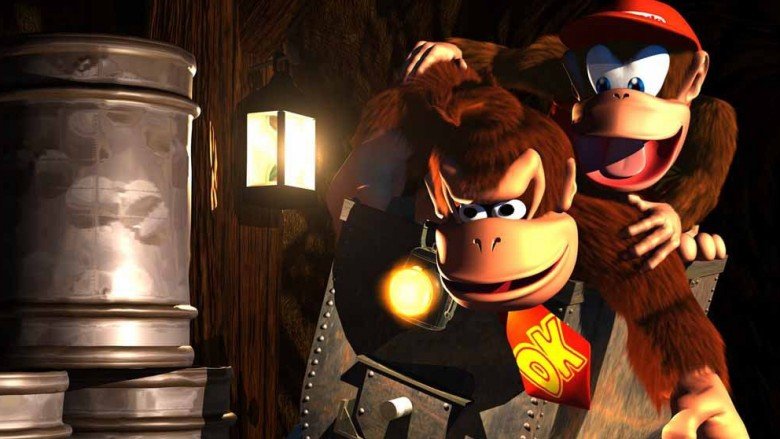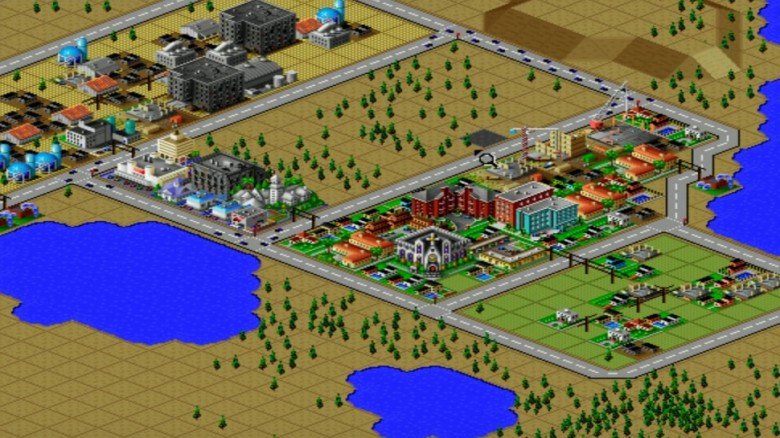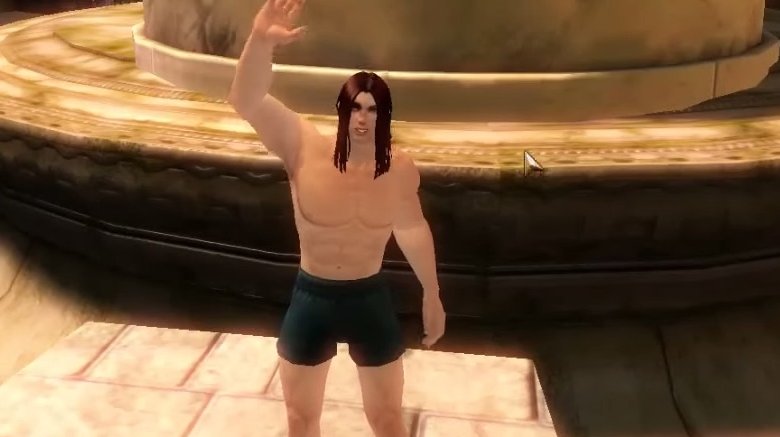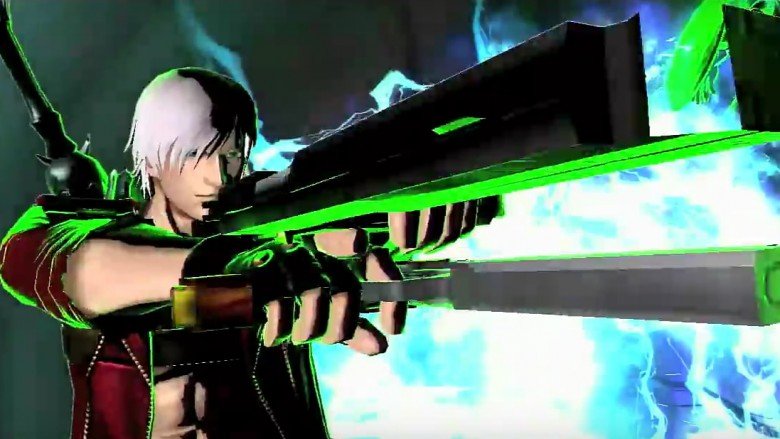Times Games Punished You For Cheating
No one likes a cheater, especially in video games. Throughout gaming history, certain titles and developers have found clever, and sometimes cruel, ways of making you regret your unfair actions. Here's a list of games that uniquely punish players for being a cheater cheater pumpkin eater.
Link's Awakening brands you a THIEF
Link may be Nintendo's most moral, princess-saving, evil-smiting swordsman around—but that's not to say the Hyrulean is perfect. While he is, overall, a pretty moral tunic-sporting dude, he's been known to get a case of the sticky fingers every now and again.
In the fourth installment of Nintendo's Legend of Zelda series, Link's Awakening, players who fail to resist the call of their inner kleptomaniac in the Mabe Village Shop are punished by means of a permanent guilt trip. Instead of being tracked down by the authorities or receiving some sort of physical punishment, Link's Awakening asks you, upon exiting the shop with your stolen goods in tow, if you're "proud of yourself"—before renaming the hero "THIEF." At first, this new moniker is makes us feel guilty, sure. As we progress through the game, however, the constant reminder of our past crimes detaches us from who we really are. We stop feeling like Link, and feel more and more like THIEF. And that's not a good feeling.
There's no way to remove the Hyrulean scarlet letter once it's been branded. After all, you know what they say: once you go Thief, you never go back. And, for the record, you don't want to go back to the Mabe Village Shop—the shopkeeper will kill you.
Banjo-Kazooie deletes your save file
Some single-player games have little tolerance for cheating. Banjo-Kazooie is one such game.
In Rare's classic 3D platformer, there are good cheat codes...and there are bad cheat codes. Entering legal cheats in the Sandcastle is totally fine, and the player receives no form of punishment. Entering illegal cheats, however, results in Grunty straight-up deleting your save file—but not without warning. Once you start toeing the line, Bottles justly give you a heads up to knock it off. Ignore your buddy Bottles, and you can have fun starting the game over. From scratch.
Everyone hates having their save file corrupted or accidentally deleted. But if you cheat and ignore the game's warning, then you really had this punishment coming.
Donkey Kong 64 becomes permanently unplayable
Some might say Donkey Kong 64 was virtually unplayable, because it's a dull and tiring 3D platformer, which boils down to little more than a collect-a-thon. Cheaters, however, found the game to be literally unplayable, regardless of their opinions on the title's merits.
Users of the Nintendo 64's third-party cheat cartridge, GameShark Pro, experienced an unpleasant surprise when applying cheats to Donkey Kong 64. Apparently, using any GameShark code in the title causes Donkey Kong to experience uncontrollable muscle spasms. Furthermore, the GameShark corrupts your save file, preventing the player from picking up any item, and resulting in perpetual one-hit deaths—effectively rendering the game unplayable. Even worse, saving the game after applying a code will permanently damage the game cartridge. (Permanently! As in, forever!)
Of course we don't condone cheating, but this punishment is just plain cruel, and unusual.
SimCity cripples you with debt, or disasters
Being a mayor ain't easy—and when the going gets tough, it's hard to resist the lure of fast cash. However, like a teenager with a credit card, irresponsible loan-taking yields disastrous results.
In the classic city-building simulation title SimCity 2000, players have a variety of cheat codes at their disposal. Typing in "FUND" during gameplay awards the player a loan, which carries a staggering 25% interest, all but ensuring the player is permanently enslaved to the banks. If cutting deals with evil Wall Street bankers isn't your bag, you can admit to being a filthy cheater by typing "imacheat" during gameplay, adding a cool half-million to your bank account, which, despite admitting to your moral flaws, increases your chances of disasters—particularly plane crashes. If you're only looking for a quick-and-easy $250, players can type "cass" during gameplay, though the money comes packaged with an 85% chance of having a disaster—which is pretty harsh, considering you probably can't even be able to buy a current-gen game console for that much.
SimCity 2000 all but defines the saying: "cheaters never prosper."
A Death Star destroys your buildings in Afterlife
Afterlife is a city-building video game in which the player assumes the role of a Demiurge, tasked with constructing and managing the infrastructures of both Heaven and Hell. In other words, if Dante Alighieri made SimCity, this game would be the result. Except, Dante didn't make this game—LucasArts did. And what good would a LucasArts game be if it didn't have a touch of Star Wars?
At any point in the game, players can enter a code and receive one million pennies — the game's currency. However, Afterlife has a pretty sweet surprise in store for those who feel the need to abuse this privilege. Cheating too many times in Heaven or Hell results in everyone's favorite planet destroyer—the freaking Death Star!—paying a visit to your city...and not for just some tea and a chat. Darth Vader's trillion-credit death moon straight-up obliterates your post-mortem locales into a galaxy far, far away.
Screw natural disasters like earthquakes, floods, or fires. Catastrophic destruction by Death Star is the punishment we're looking for.
Guild War 2 publicly shamed a notorious cheater
Generally speaking, cheaters in massively-multiplayer online role-playing games are usually banned, plain and simple. One particularly notorious hacker in Guild Wars 2, however, wasn't merely banned—he was made an example of.
After three weeks of unfairly dominating, and allegedly hacking, the game's player-versus-player competitive mode, the character known as J T Darkside paid dearly. After receiving a plethora of complaints against the character, game security lead Chris Cleary shared a video of the offending player being publicly humiliated. First, the player was stripped naked and walked to the edge of a tall building. Next, Darkside was forced to wave, before plummeting to his death. The video continues to show Darkside, as well as another character tied to the account, systematically deleted. The account was then banned.
Not everyone agrees that this public humiliation was proper. But if you ask us, the cheater got what was coming to him.
Marvel vs. Capcom 3 rage quitters must play together
Rage Quitter: noun, one who quits a competitive match in an act of rage. Nobody likes playing against these despicable sore losers, especially because rage-quitting sometimes results in the match statistics not being recorded—thus rendering the whole thing a total waste of time, and that much more despicable. Capcom doesn't take too kindly to this kind of behavior, and came up with a clever way to punish these poor sports.
In Marvel vs. Capcom 3, proven rage quitters were banned from playing competitively against those who accept defeat with grace. Instead, sore losers are only able to play against others of their own kind, resulting in some hilarious, hypothetical "who will quit first" scenarios. This system of punishment is highly popular with the online fighting community, and is something many players feel should be implemented in all games where rage-quitting has a negative impact—which is most online games.
Nobody's perfect. We've all had our moments where we give in to the temptation to duck out of a match early in an effort to preserve our record or ranking. But there's a special place in Hell for habitual rage quitters—as well as a special place in Marvel vs. Capcom 3.
H1Z1 developer made cheaters publicly apologize on YouTube
On one fateful Monday in 2015, 23,837 cheaters were banned from the popular massively-multiplayer online survival game H1Z1: Just Survive. Daybreak Game Company president John Smedley took to Twitter afterwards to provide a creative and unique way for some banned players to regain their privileges. "Dear Cheaters who got banned," wrote Smedley, "[m]any of you are emailing me, apologizing and admitting it. Thank you. However.. You're doing it wrong. If you want us to even consider your apology a public YouTube apology is necessary." This apology hit some players where it hurts the most—the internet.
More than just talk, Smedley took the banning and unbanning of players very seriously, going so far as to re-ban players who subsequently made their YouTube apology videos private. In a game all about online competition, there's no room for cheating, and Smedley made that crystal clear.
Grand Theft Auto V blew up cheaters with an unsuspecting car bomb
Rockstar once punished some Grand Theft Auto V online cheaters in the most GTA way possible.
In 2015, some shifty players found a way to bring the massively-overpowered, single-player-only Duke O'Death vehicle to Grand Theft Auto V's online mode. Rockstar wasn't about to have any of that, so they quickly resolved this exploit with a hilarious patch. Instead of having the patch simply remove the illegal vehicle, or suspending accounts, unsuspecting cheaters were treated to an exploding car bomb upon entering the unfair Duke O'Death—killing their character, as well as providing a nice little jump scare. Not only is this method of doling out punishment funny, it's both fair and playful at the same time, illustrating Rockstar's classic sense of humor.
Lara Croft explodes
Assuming you actually played Tomb Raider 2 instead of keeping it hidden under your mattress, there's a good chance you used cheat codes. There's also a good chance you made poor Lara explode.
No one is quite sure of the exact reason why Core Design's polygonal platformer featured the ability to make Lara Croft spontaneously combust. Some theories exist it was put in place to counter fake nude codes—which don't actually exist—in order to make those who entered them feel instantly ashamed. Perhaps a more plausible explanation is that the exploding Lara code was simply a punishment for those who incorrectly inputted the all-weapons or level-skip codes, which are quite similar to the combination of inputs required to make Lara burst into an array of limbs and body parts—which each subsequently explode, themselves, upon impact.
We prefer to think the developers included the code to make prepubescent boys frantically shut off their PC, hide behind their couch in shame, and never tell anyone about what happened.





